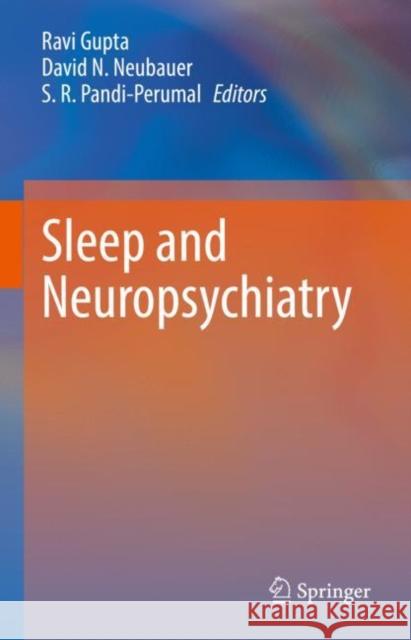Sleep and Neuropsychiatric Disorders » książka



Sleep and Neuropsychiatric Disorders
ISBN-13: 9789811601224 / Angielski / Twarda / 2022
Sleep and Neuropsychiatric Disorders
ISBN-13: 9789811601224 / Angielski / Twarda / 2022
(netto: 885,92 VAT: 5%)
Najniższa cena z 30 dni: 886,75
ok. 16-18 dni roboczych.
Darmowa dostawa!
Module 1. Basic Science.- Module 2. Behavioral symptoms across sleep disorders: diagnostic challenges.- Module 3. Sleep changes across neuropsychiatric disorders.- Module 4. Neuropsychopharmacology.
Ravi Gupta, MD, PhD., is a certified Sleep physician (World Sleep Federation) and Additional Professor in the Department of Psychiatry and Division of Sleep Medicine, All India Institute of Medical Science, Rishikesh, India. He has authored more than 130 research articles in peer-reviewed journals and nearly thirty chapters in national and international books. He is the author of both the Indian and International volumes including the book Psychiatry for Beginners and Clinical Atlas of Polysomnography. He has been conferred young psychiatrist fellowships from World Psychiatric Association and Japanese Society of Psychiatry and Neurology. He also revived mini-fellowship from American Academy of Sleep Medicine. He is member of the editorial board of a number of journals, and serving at various positions in a number of national and international professional bodies.
David N. Neubauer, MD., is an Associate Director of the Johns Hopkins Sleep Disorders Center and an Assistant Professor in the Department of psychiatry at the Johns Hopkins University, School of Medicine in Baltimore. He is also the medical director of the Psychiatry Mobile Treatment Program at the Johns Hopkins Bayview Medical Center. He has earned his master's degrees in anthropology, and a bachelor’s degree in biology at Florida Atlantic University in Boca Raton. He had further pursued his graduate studies in anthropology at the University of British Columbia in Vancouver. He went on to earn his medical degree from the University Of Miami School Of Medicine and then completed his residency in psychiatry at the Henry Phipps Psychiatric Service at Johns Hopkins Hospital. He is a diplomat of the American Board of Sleep Medicine. He is a member of several professional organizations, including the American Academy of Sleep Medicine, the Sleep Research Society, the Society for Light Treatment and Biological Rhythms, the American Psychiatric Association, and the American Medical Association. He is a consultant to the Food and Drug Administration Center for Drug Evaluation and Research. He was a consultant to Consumer Reports Health for the 2005 review of treatments for insomnia. He is a frequent guest lecturer and the author of journal articles, book chapters, and abstracts. He is the author of the insomnia chapter in Conn’s Current Therapy 2004, the sleep disorders chapter in Conn’s Current Therapy 2007, and a book, Understanding Sleeplessness: Perspectives on Insomnia.
S.R. Pandi-Perumal, MSc., is the President and Chief Executive Officer of Somnogen Canada Inc., a Canadian Corporation. Pandi is popular among the sleep community. He is a world-acclaimed sleep researcher and has authored over 200 publications and has edited over 25 high-profile academic volumes dealing with various sleep-related topics. Drawn to the benefits and significance of the sleep cycle, his personal and professional careers have been involved in advocating/achieving a good night’s slumber.
The book offers readers up-to-date information on different facets of the bidirectional connections between sleep and neuropsychiatric diseases. Following the initial fundamental science part, a unique series of chapters concentrate on the behavioural manifestations of sleep problems, a hitherto unexplored field. Additional chapters include patient evaluation techniques as well as public health implications of sleep disorders. The individual chapters cover all main mental and neurological diseases where a change in sleep is evident, and recent concepts in pathogenesis, presentation, evaluation, and treatment. Neuropsychotropic drugs must be seen as a double-edged sword when it comes to sleep and sleep disorders. Overall, this book is an excellent resource for learning about neuropsychiatric diseases and how they affect sleep while simultaneously being impacted by sleep.
1997-2026 DolnySlask.com Agencja Internetowa
KrainaKsiazek.PL - Księgarnia Internetowa









